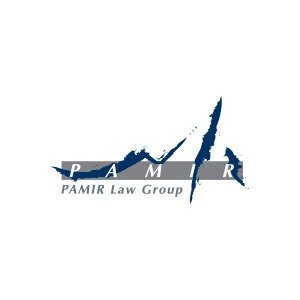Best Due Diligence Lawyers in Taipei
Share your needs with us, get contacted by law firms.
Free. Takes 2 min.
List of the best lawyers in Taipei, Taiwan
About Due Diligence Law in Taipei, Taiwan:
Due diligence is an essential legal procedure to ensure informed decision-making and risk assessment when entering into various business transactions in Taipei, Taiwan. It involves a thorough investigation and evaluation of a company, investment, or property to identify any potential risks, liabilities, or hidden concerns.
Why You May Need a Lawyer:
Engaging a lawyer is crucial when dealing with due diligence matters in Taipei, Taiwan. They can provide valuable expertise and guidance in navigating the complex legal environment, managing documentation, conducting investigations, assessing risks, and ensuring compliance with local regulations. Some common situations where you may need legal help in due diligence include:
- Investing in a new business
- Merging or acquiring a company
- Real estate transactions
- Intellectual property rights evaluations
- Forming partnerships or joint ventures
Local Laws Overview:
When it comes to due diligence in Taipei, Taiwan, there are several key aspects of local laws that are particularly relevant:
- Company Law: The Company Law governs the establishment, management, and dissolution of companies in Taiwan. It outlines the procedures and requirements for conducting due diligence in the context of mergers, acquisitions, and investments.
- Contract Law: The Contract Law in Taipei, Taiwan, provides the legal framework for drafting, executing, and enforcing contracts. Understanding contractual obligations and liabilities is essential during the due diligence process.
- Intellectual Property Law: Protecting intellectual property rights is crucial. Familiarize yourself with the Intellectual Property Law to ensure proper evaluation and protection of these assets during due diligence.
- Real Estate Law: Real estate transactions often involve complex legal procedures. Comprehending the Real Estate Law is vital for assessing property ownership, encumbrances, zoning regulations, and potential disputes.
- Foreign Investment Regulations: Foreign investors must be aware of specific regulations, restrictions, and approvals required for investing in Taiwanese businesses or properties. Understanding these regulations can help mitigate investment risks.
Frequently Asked Questions:
Q1: What is the primary purpose of conducting due diligence in Taipei, Taiwan?
A1: The primary purpose of due diligence is to identify and assess any potential risks, liabilities, or concerns associated with a business or investment opportunity in Taipei, Taiwan. It helps ensure informed decision-making and minimizes the likelihood of unforeseen issues arising in the future.
Q2: What information should I gather during the due diligence process?
A2: During due diligence, you should gather information related to financial statements, contracts, licenses and permits, intellectual property rights, tax records, litigation history, regulatory compliance, and any other relevant documents that can provide insight into the target company or asset.
Q3: How long does the due diligence process typically take?
A3: The duration of the due diligence process can vary depending on the complexity of the transaction and the volume of information to review. It may take anywhere from several weeks to a few months. Working closely with a lawyer can help expedite the process.
Q4: What are the potential red flags to watch out for during due diligence?
A4: Some common red flags during due diligence include undisclosed liabilities, pending lawsuits, inconsistent financial records, environmental issues, non-compliance with regulations, and inadequate intellectual property protection.
Q5: Can I proceed with a business transaction if red flags are discovered during due diligence?
A5: Discovering red flags during the due diligence process doesn't necessarily mean you should abandon the transaction. However, it is essential to evaluate the risks and determine if proper measures can be taken to address or mitigate them. Consulting with a lawyer can help you make an informed decision.
Additional Resources:
For further information and resources related to due diligence in Taipei, Taiwan, consider exploring the following:
- The Ministry of Economic Affairs (https://www.moea.gov.tw/): Governmental body responsible for business and economic matters in Taiwan.
- Taipei Bar Association (https://www.taipei-bar.org.tw/): An organization that provides legal resources and support in Taipei.
Next Steps:
If you require legal assistance in due diligence matters in Taipei, Taiwan, follow these steps:
- Identify the specific area of due diligence you need help with (e.g. company acquisition, real estate transaction).
- Use online directories or seek recommendations to find reputable lawyers specialized in due diligence in Taipei.
- Contact the selected lawyers and schedule initial consultations to discuss your situation and assess their expertise.
- During the consultation, ask about their experience, fees, and how they can assist you in navigating the due diligence process.
- Select a lawyer who understands your needs, has relevant experience, and with whom you feel comfortable working.
- Proceed with engaging the lawyer and commence the due diligence process under their guidance.
Lawzana helps you find the best lawyers and law firms in Taipei through a curated and pre-screened list of qualified legal professionals. Our platform offers rankings and detailed profiles of attorneys and law firms, allowing you to compare based on practice areas, including Due Diligence, experience, and client feedback.
Each profile includes a description of the firm's areas of practice, client reviews, team members and partners, year of establishment, spoken languages, office locations, contact information, social media presence, and any published articles or resources. Most firms on our platform speak English and are experienced in both local and international legal matters.
Get a quote from top-rated law firms in Taipei, Taiwan — quickly, securely, and without unnecessary hassle.
Disclaimer:
The information provided on this page is for general informational purposes only and does not constitute legal advice. While we strive to ensure the accuracy and relevance of the content, legal information may change over time, and interpretations of the law can vary. You should always consult with a qualified legal professional for advice specific to your situation.
We disclaim all liability for actions taken or not taken based on the content of this page. If you believe any information is incorrect or outdated, please contact us, and we will review and update it where appropriate.
















